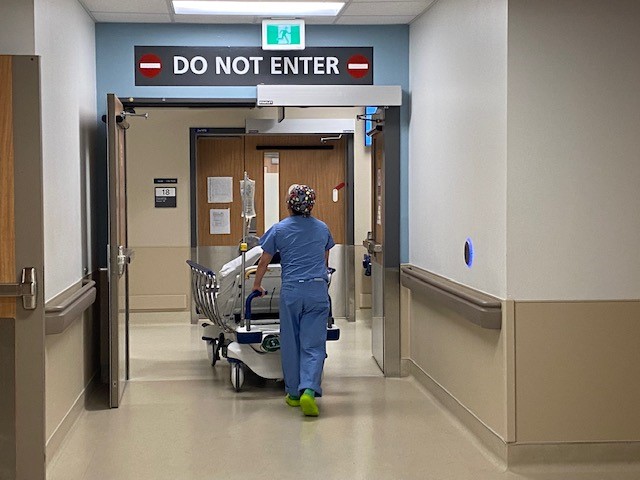A Manitoba man says he wants to bring more awareness to the problem of long waiting lists for people who are lined up for elective surgery.

Max Johnson told 680 CJOB he was tired of waiting for elective knee surgery, so he travelled overseas to Lithuania to get the procedure done right away and has invoiced the province for the cost.
He isn’t expecting to get reimbursed — but says he felt he needed to do something before his condition got worse, and he hopes his situation will bring more attention to the problem.

“I don’t blame the system necessarily — they’re doing it as fast as they can, but now we have thousands of people on this nominal wait list who are getting worse all the time,” he said.
“You start off with one bad knee, you end up with two bad knees and a bad hip. I decided if there was an alternative and an option, I would look at taking it.”
The cost of the trip to Lithuania, which included the knee replacement and full two weeks in rehab, was $14,500, compared to the over $21,000 price tag for the surgery at home in Manitoba.
Johnson said part of the problem is that the term ‘elective’ doesn’t necessarily reflect the seriousness of many Manitobans’ conditions.
“‘Elective’ sort of implies somehow it’s voluntary, not totally necessary. But there are many people in this city, in this province, who are waiting for hip and knee surgery who are simply immobile.
“No, it’s not elective.”
Global News has reached out to the province for comment.
Although the invoice he sent the province was more to make a point than receive an actual reimbursement, Johnson said he hopes Manitoba’s healthcare system considers the importance of some elective surgeries, even from an economic perspective.
“Apart from anything else, it allows people to get back and work and pay tax into the system — so instead of being idle for two years, you can get back and actually participate.
“They call it a waiting list, but that implies management, and in reality, it’s more akin to a large corral that they put people in.”
According to a summer 2021 report by the Canadian Joint Replacement Registry, hip and knee replacements are two of the most common procedures nationwide — with more than 138,000 surgeries across Canada per year, and estimated inpatient costs of over $1.4 billion annually.
- Buzz kill? Gen Z less interested in coffee than older Canadians, survey shows
- ‘She gets to be 10’: Ontario child’s heart donated to girl the same age
- Bird flu risk to humans an ‘enormous concern,’ WHO says. Here’s what to know
- Canada updating sperm donor screening criteria for men who have sex with men








Comments